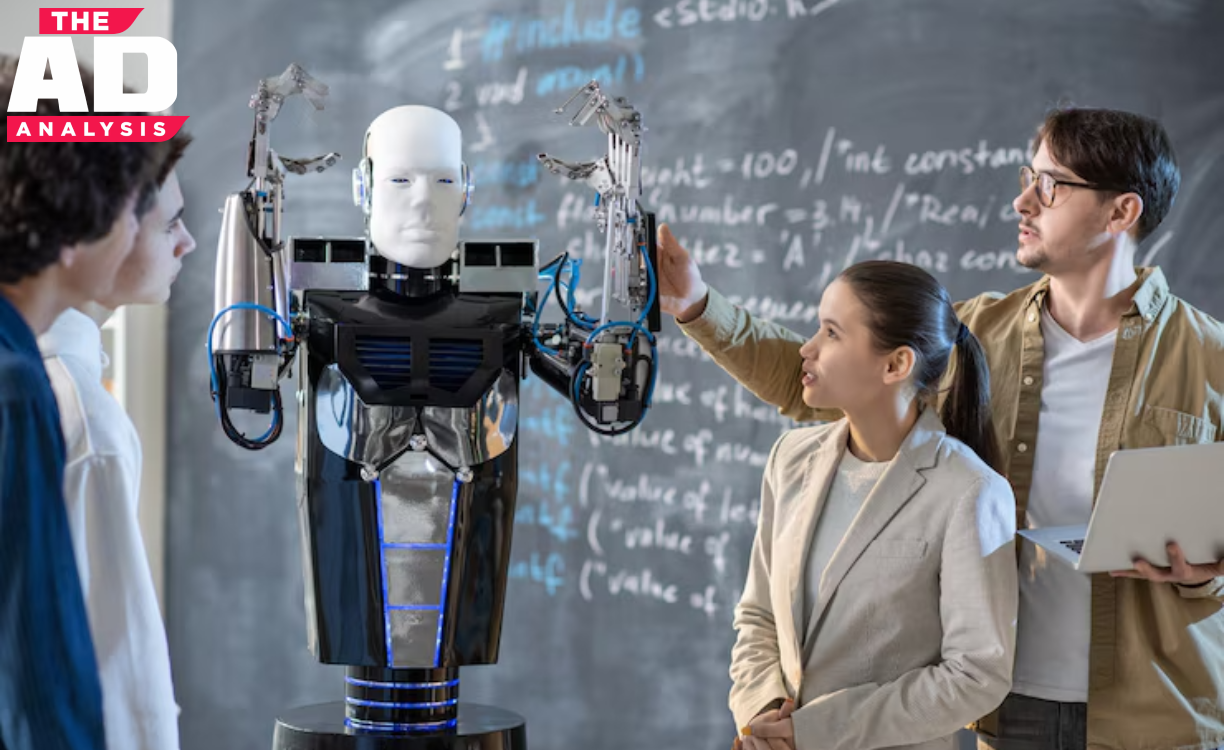Artificial Intelligence (AI) and Machine Learning (ML) are revolutionizing software solutions across industries. From automation and data analysis to predictive decision-making and enhanced security, AI-driven technologies are transforming how businesses develop, deploy, and maintain software applications.
With companies investing heavily in AI-powered solutions, software is becoming more efficient, intelligent, and adaptive to user needs. This guide explores how AI and ML are reshaping the future of software development and business solutions.
🔹 What Are AI and Machine Learning?
✅ Artificial Intelligence (AI):
AI refers to machines mimicking human intelligence, allowing computers to analyze data, recognize patterns, and make decisions with minimal human intervention.
✅ Machine Learning (ML):
ML is a subset of AI that enables software to learn from data and improve its performance without being explicitly programmed. ML models identify patterns, make predictions, and optimize processes.
🔹 Examples of AI & ML in Action:
✔ Netflix’s recommendation system (suggesting personalized content).
✔ Chatbots in customer service (handling queries instantly).
✔ Fraud detection systems (analyzing suspicious transactions).
✔ Self-driving cars (processing real-time sensor data).
🔹 How AI and ML Are Transforming Software Solutions
1️⃣ Automated Software Development & Testing
💻 AI speeds up coding, debugging, and software testing, reducing human effort.
✔ AI-powered code completion tools (e.g., GitHub Copilot, Tabnine) suggest accurate lines of code.
✔ AI-driven automated testing tools (e.g., Testim, Applitools) detect bugs faster than humans.
🔹 Impact: Faster development cycles, fewer errors, and improved software quality.
2️⃣ AI-Powered Chatbots & Virtual Assistants
🤖 AI-driven chatbots and virtual assistants handle customer inquiries, support, and interactions.
✔ Examples: ChatGPT, Google Assistant, Amazon Alexa, and Siri.
✔ AI personalizes responses based on previous user interactions.
🔹 Impact: Businesses save time and improve customer satisfaction.
3️⃣ Predictive Analytics & Decision-Making
📊 AI processes large volumes of data to provide predictive insights for businesses.
✔ E-commerce: Predicts which products customers are likely to buy.
✔ Healthcare: AI analyzes patient data to detect diseases early.
✔ Finance: AI forecasts stock market trends and detects fraud.
🔹 Impact: Companies make data-driven decisions, improving efficiency and revenue.
4️⃣ AI-Enhanced Cybersecurity & Threat Detection
🔒 AI detects and prevents cyberattacks in real time.
✔ Machine learning algorithms recognize suspicious behavior and stop threats.
✔ AI-powered firewalls automatically adjust security policies.
✔ Fraud detection software spots unusual transactions instantly.
🔹 Impact: Stronger security, fewer breaches, and faster response to threats.
5️⃣ Intelligent Automation in Business Processes
⚙ AI automates repetitive tasks, improving efficiency and reducing costs.
✔ HR & Recruitment: AI scans resumes, ranks candidates, and automates interviews.
✔ Supply Chain: AI predicts demand, optimizes logistics, and reduces waste.
✔ Marketing: AI personalizes ad campaigns, increasing engagement.
🔹 Impact: Businesses save time, reduce costs, and boost productivity.
6️⃣ AI in Personalization & User Experience (UX)
🎯 AI personalizes content, recommendations, and interfaces based on user behavior.
✔ Spotify & YouTube recommend personalized playlists/videos.
✔ Amazon & Shopify suggest products based on purchase history.
✔ AI-driven UX design adapts interfaces to user preferences.
🔹 Impact: Better customer engagement, higher retention, and improved satisfaction.
7️⃣ AI-Driven Software Maintenance & Performance Optimization
🔄 AI predicts software failures and optimizes system performance.
✔ Self-healing software fixes bugs without human intervention.
✔ AI monitors applications in real-time to detect inefficiencies.
✔ Predictive maintenance reduces downtime and improves system reliability.
🔹 Impact: More stable, efficient, and self-sufficient software applications.
🔹 Challenges of AI & ML in Software Development
🔸 Data Privacy & Security – AI systems require large datasets, raising concerns about privacy and misuse.
🔸 Bias in AI Models – AI models may inherit bias from training data, leading to unfair decision-making.
🔸 High Implementation Costs – Developing AI-powered software requires investment in infrastructure & expertise.
🔸 Lack of Explainability – Some AI models function as black boxes, making it hard to interpret decisions.
🔹 Future of AI & ML in Software Solutions
🚀 AI and ML will continue reshaping industries by:
✔ Enhancing automation and reducing human effort.
✔ Improving predictive analytics for decision-making.
✔ Advancing self-learning and adaptive software.
✔ Creating AI-powered software that continuously evolves.
🔹 AI-driven software solutions will dominate industries like:
- Healthcare (AI-powered diagnosis & robotic surgeries).
- Finance (automated trading & fraud detection).
- Retail & E-commerce (hyper-personalization & inventory management).
- Manufacturing (AI-powered robotics & predictive maintenance).
🔹 Conclusion: The AI-Driven Software Revolution
📈 AI and Machine Learning are driving a new era of intelligent software solutions. From automation and cybersecurity to personalization and predictive analytics, AI-powered technologies are reshaping how businesses develop and use software.
As AI continues to evolve, businesses that adopt AI-driven software solutions will gain a competitive advantage, improve efficiency, and enhance user experiences.



